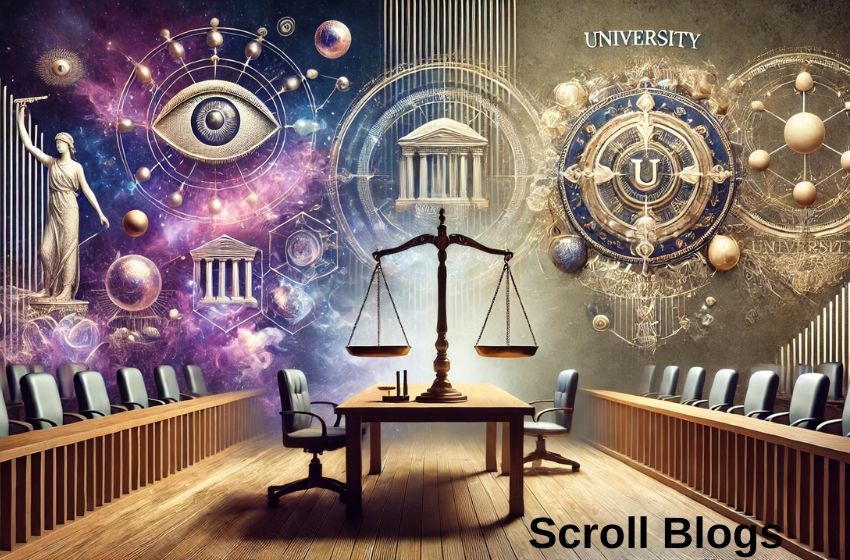The “University of Metaphysical Sciences lawsuit” has garnered attention in recent years, sparking discussions about metaphysical education, accreditation, and legal implications within alternative educational institutions. The controversy surrounding this institution raises significant questions about the balance between spiritual education and regulatory compliance. This article delves into the details of the lawsuit, the university’s background, and its implications.
Understanding the University of Metaphysical Sciences
The University of Metaphysical Sciences (UMS) is an institution that offers education in metaphysics, spiritual studies, and holistic sciences. Known for its unique curriculum, UMS provides courses in meditation, mysticism, and other spiritually centered topics. It has served individuals interested in exploring personal growth and esoteric knowledge.
The core mission of UMS is to foster spiritual education and awareness. Despite its popularity among spiritual seekers, the institution has faced scrutiny over its accreditation, operations, and alignment with regulatory standards.
Origins of the University of Metaphysical Sciences Lawsuit
The “University of Metaphysical Sciences lawsuit” emerged from concerns regarding the institution’s legitimacy and compliance with educational regulations. Critics have questioned whether UMS operates as a legitimate academic entity or merely as a business offering unaccredited degrees. These challenges are not uncommon in the metaphysical education sector, which exists outside traditional academic frameworks.
Specific allegations within the lawsuit have included claims about misleading representations regarding degree programs, the credibility of certifications offered, and non-compliance with state or federal educational standards. These legal disputes often revolve around consumer protection laws and false advertising claims.
Key Issues in the Lawsuit
Accreditation and Legitimacy
A central issue in the “University of Metaphysical Sciences lawsuit” is the question of accreditation. Accreditation is crucial for ensuring that an institution meets established standards of quality and rigor. UMS, like many spiritual or metaphysical schools, operates as a private organization and is not accredited by mainstream educational bodies. Critics argue that this lack of accreditation misleads prospective students.
Degree Recognition
The legitimacy of degrees and certifications offered by UMS has also come under scrutiny. Graduates may face difficulties using their qualifications in professional or academic settings due to the university’s non-accredited status. The lawsuit highlights the importance of transparency about degree recognition for institutions offering alternative education.
Consumer Protection Concerns
The lawsuit has raised questions about whether UMS provided clear and accurate information to students. Allegations of misrepresentation can have serious legal consequences, as they potentially violate consumer protection laws designed to safeguard individuals from fraudulent practices.
Implications of the Lawsuit for Metaphysical Education
The “University of Metaphysical Sciences lawsuit” holds broader implications for metaphysical education as a whole. Institutions offering spiritual and holistic courses often navigate a complex landscape of regulations, accreditation, and public perception. This lawsuit underscores the need for clarity and integrity in representing the value and limitations of such educational offerings.
The legal challenges faced by UMS also reflect the tension between innovative educational models and traditional regulatory frameworks. As interest in metaphysical and alternative education grows, similar institutions may face increased scrutiny.
Responses from the University of Metaphysical Sciences
UMS has defended its mission and practices, emphasizing its role as a pioneer in metaphysical education. The university has highlighted the spiritual and personal development benefits of its programs, arguing that its educational model serves a specific audience seeking non-traditional learning experiences. However, addressing the allegations within the lawsuit remains a critical challenge for the institution.
Broader Lessons from the Lawsuit
The “University of Metaphysical Sciences lawsuit” serves as a cautionary tale for both educational institutions and students. For schools, it highlights the importance of maintaining transparency, ensuring compliance with regulations, and clearly communicating the value of their offerings. For students, the case underscores the necessity of thorough research when selecting educational programs, especially in unaccredited or niche fields.
The Future of Metaphysical Education
Despite the controversies surrounding the “University of Metaphysical Sciences lawsuit,” interest in metaphysical education is unlikely to wane. The case may inspire reforms and increased oversight, potentially leading to higher standards and greater legitimacy for institutions in this field. As the demand for spiritual and alternative education grows, balancing innovation with accountability will be crucial.

